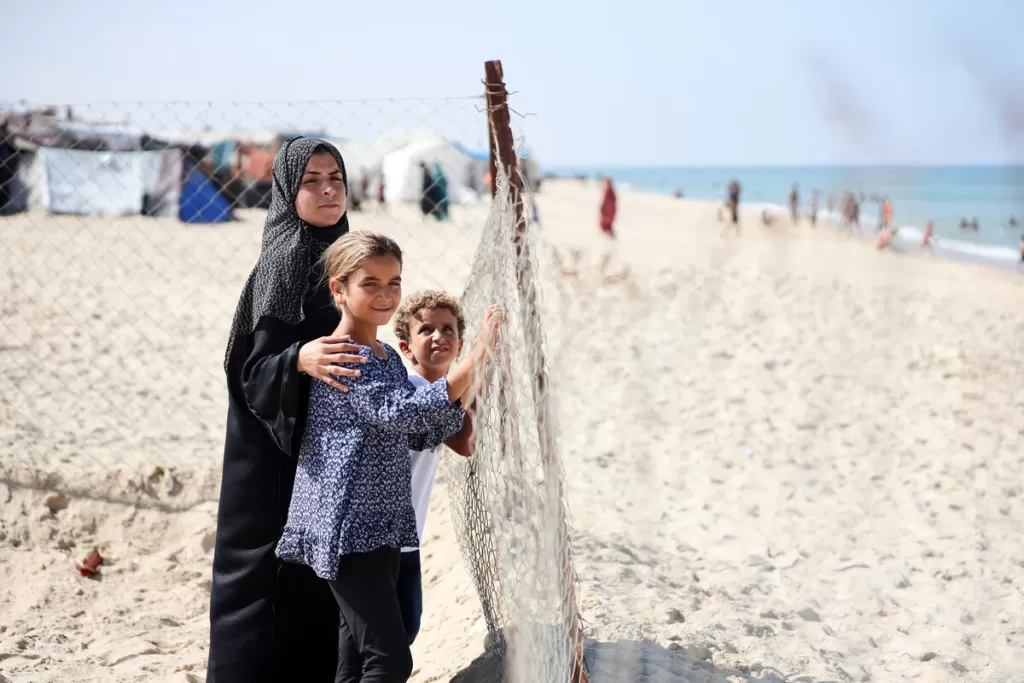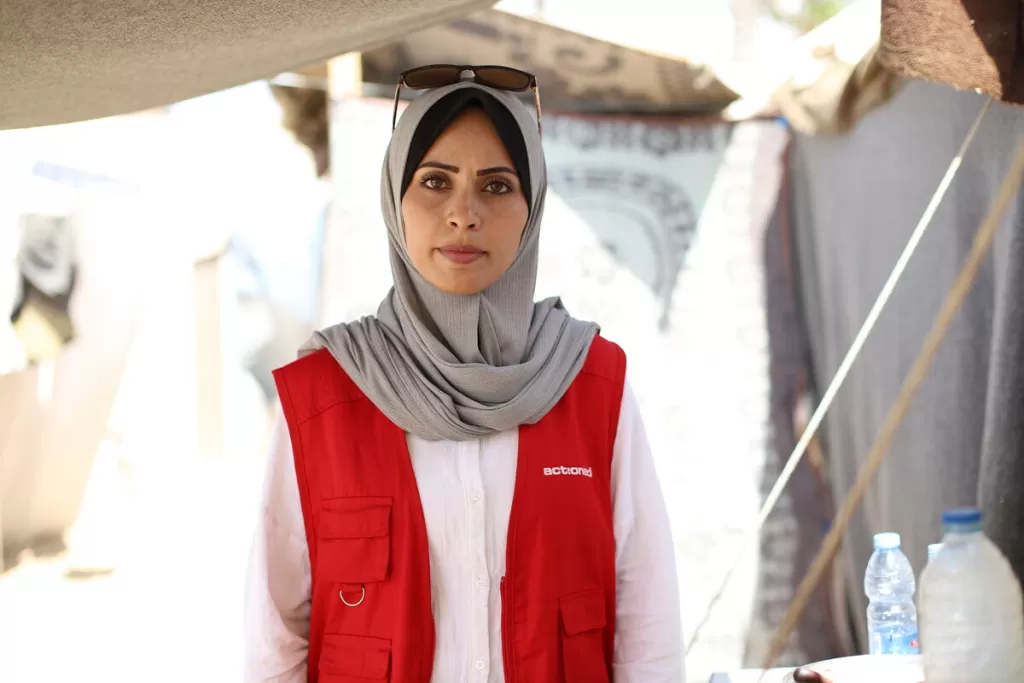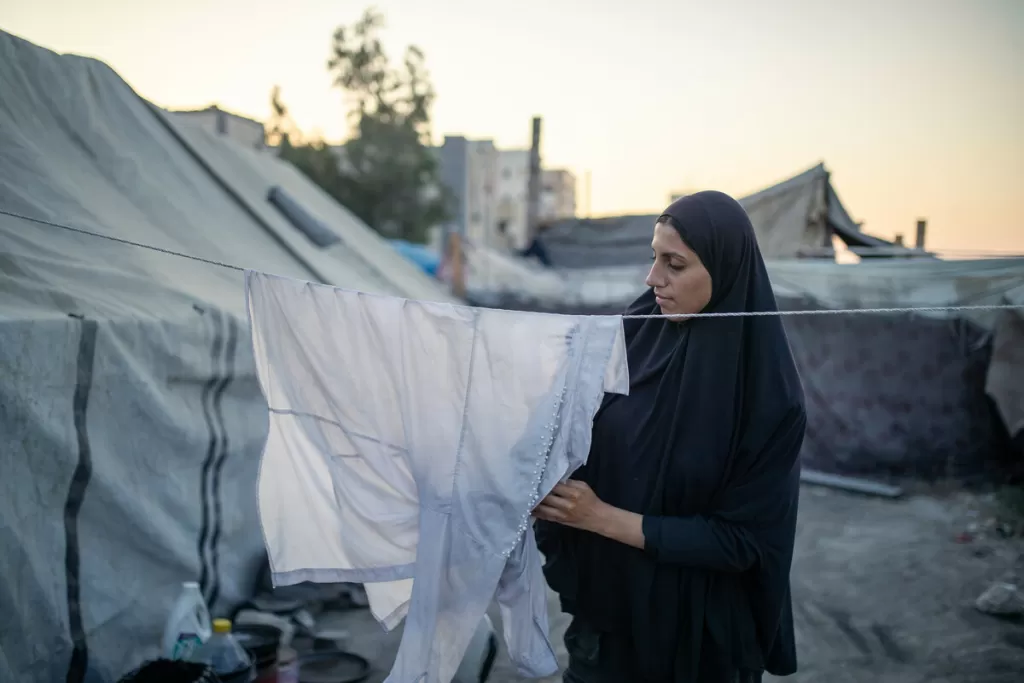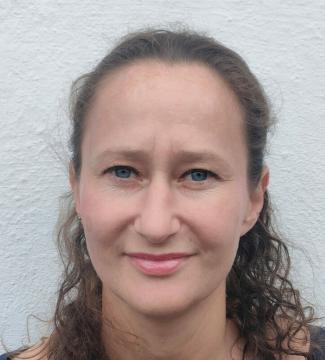
Life in Gaza: How DEC charities are supporting women in displacement camps
28 November 2024

Darine and her children look out over the sea at their beachside camp. Image: Majdi Fathi, October 2024.

Fatma works in the displacement camp. Image: Wattan Media Network, September 2024.

Heba hangs washing in a displacement camp in Gaza. Image: Khamis Alrifi/IRC, September 2024.
This humanitarian crisis is different
Ruth has worked in many countries, including Afghanistan, Nigeria and across the Middle East, but says the current humanitarian crisis in Gaza is different.
“All have been challenging, but Gaza was unique as a humanitarian context because people are trapped – they have nowhere to go, bordered on one side by conflict and the other by sea.”
She describes how people in Gaza are building shelters with anything they can find, like blankets and plastic bags.
“They are living in the sand in makeshift tents that have no real walls or a roof and limited personal items such as bedding, clothes, and items to prepare food. I’ve met people, including aid workers, who have been forced to flee 15 to 20 times in the past year. Every time you move, you lose stuff. As a result, they now have nothing.”
Part of Ruth’s role is to ensure that the DEC’s humanitarian programming across the region is well resourced, is of the right quality, and is meeting internal and external standards. She talks about how aid is essential to save lives and remind people they aren’t forgotten.
“People there feel abandoned, and if we're able to reach them with humanitarian aid, it will not only save their life, but also make them feel less abandoned and give them a bit of hope. Please do give what you can to the DEC Appeal – it could make all the difference.”
*Names changed to protect identity
